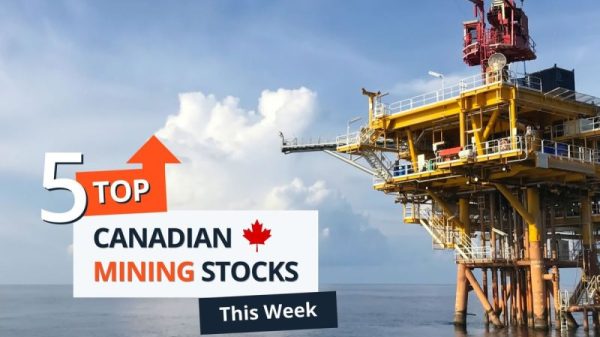Nearly everyone, from the Federal Reserve to big-bank chiefs, thought a recession was likely to hit last year. Instead, 2023 delivered better-than-expected economic growth and falling inflation — welcome news for Wall Street investors and 401(k) holders alike.
All three major stock indexes closed higher on Thursday after new federal data showed the United States’ economy grew by an estimated 2.5% over the course of 2023, defying widespread predictions that gross domestic product would rise by a languid 0.7%.
While economic output has slowed in recent months, investors’ growing optimism that the Fed will cut interest rates this year has helped power the stock market to record highs. The S&P 500 is up more than 2% at the start of this year, after jumping 26% last year. Now, many Americans whose only toehold in markets are their retirement accounts are getting in on the good times, too.
The San Francisco skyline rises behind a bank of cranes and shipping containers at the Port of Oakland.Justin Sullivan / Getty Images file
The average 401(k) balance rose to $107,700 by the third quarter of 2023, up 11% from the year before, according to the latest update from Fidelity Investments, one of the largest retirement plan providers in the nation. That growth appears to have encouraged many savers last year to sit back and relax as markets rose, rather than tinker with their allocations.
Human resources provider Alight found that net trading activity in 401(k) plans has quieted down, falling to a rate of 0.82% last year from 1.27% in 2022 — and down substantially from 3.51% in 2020, the year the pandemic slammed into markets.
The recent gains also lured account holders further into stocks, which comprised an average 70.5% of 401(k) portfolios by year’s end, up from 68.2% at the start of 2023, according to Alight data.
Of course, the stock market is hardly a mirror of the economy as a whole, with share prices rising and falling for many reasons unrelated to macroeconomic trends. And personal finance experts caution against checking your 401(k) balance in panic when markets plummet, or in jubilation when they soar. Retirement savings are meant to be held over the long term and typically reward the patient; the S&P 500 has risen 172% over the last decade, despite many short-term swings.
But for now, last year’s surprisingly strong economic growth has been a welcome development after a steady drumbeat of gloomy expectations.
“The outperformance was really driven by consumer spending that was much stronger than expected, and the main source of support for consumer spending was a resilient labor market,” EY-Parthenon Chief Economist Gregory Daco said.
Retail spending, a litmus test for households’ budgets for goods (like apparel) and services (like dining out), rose 4.8% between December 2022 and December 2023. Despite worries that Americans had burned through cash built up during the pandemic, Thursday’s data showed personal savings expanding as a percentage of disposable income, to 4.5% in 2023 from 3.3% in 2022, driven by rising wages and a robust job market.
“If you have a job and if that job is still paying you well, relative to pre-pandemic, then it’s unlikely that you’re going to be seeing any form of recession,” Daco said.
Stock markets took off as companies dodged a much-feared nosedive in consumer activity, which accounts for about two-thirds of the economy. The S&P 500’s massive gains were largely driven by tech-heavy giants like Nvidia, Meta and Tesla, but smaller companies have also been cheered that households are still spending at a healthy clip.
While Wall Street analysts still broadly expect the stock market to keep rising, many foresee a softer year ahead.
“This does not mean growth will not slow further,” Moody’s Analytics Senior Director Scott Hoyt said in a note after the GDP data landed Thursday.
A recent Bloomberg survey found forecasters expect the S&P 500 to rise to 4,950 by year-end, a 3.8% upside from where the index ended last year. Recession risks haven’t evaporated, either. Some analysts warn that 2024 could see things sour for both the economy and the stock market — potentially imperiling those higher 401(k) figures.
BCA Research said in December that it expects the S&P to fall as much as 27% this year, predicting that the Fed’s rate hikes haven’t fully sunk in across the economy and will further pressure households as resumed student loan payments continue and high credit card rates bite.
“A slowdown in consumer spending is imminent,” the firm said. At the same time, the BCA analysts admitted they had “underestimated the strength of the U.S. consumer coming into 2023.”







































